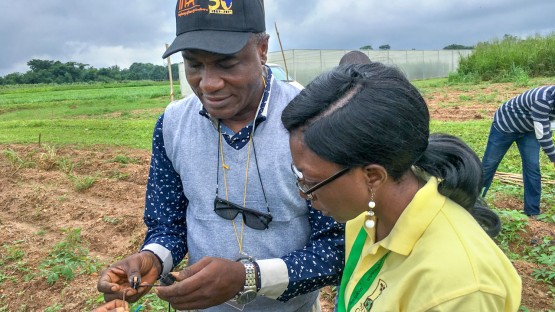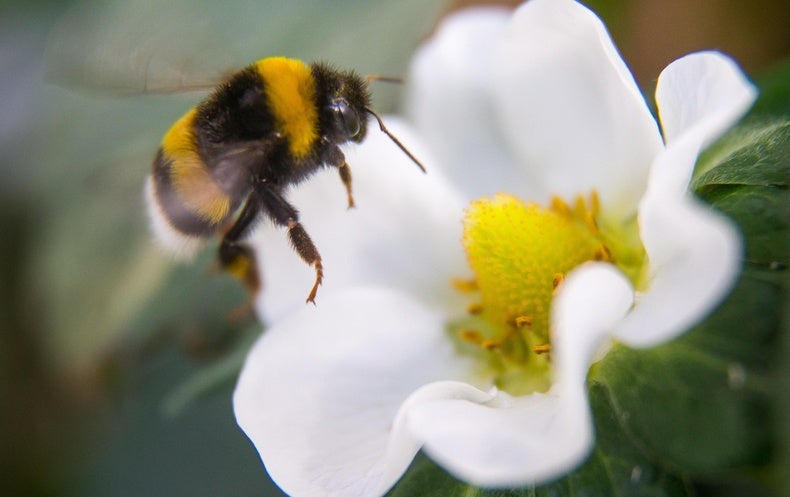
New insights on flowering could boost cassava crops | Cornell Chronicle
Deborah Oluwasanya, Ph.D. '20, right, and Martins Akeredolu, deputy head at International Institute of Tropical Agriculture, study flowering cassava at a research field in Nigeria.
Two new publications examining cassava flowering reveal insights into the genetic and environmental factors underpinning one of the world’s most critical food security crops.
A tropical root crop that is a daily staple food to hundreds of millions of people in Africa and increasingly being used by smallholder farmers in commercial production, cassava has historically been difficult for plant breeders to improve in part because of delayed and poor production of flowers.
The new studies, funded by the NextGen Cassava project and led by scientists at Cornell and the International Institute of Tropical Agriculture, provide plant breeders with potential best practices to overcome poor (particularly low numbers of female flowers) or delayed flower production.
The lead authors on both papers are Deborah Oluwasanya, Ph.D ‘20 and Tim Setter, professor of soil and crop science in the School of Integrative Plant Science in the College of Agriculture and Life Sciences.

























